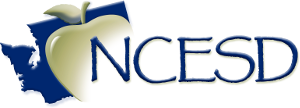Computer Science Resources & Tools
Click on the links below to jump to a specific section of resources:
Computer Science Standards
Effective and relevant computer science education is essential to achieving our vision that “every student is ready for college, career, and life.” While attention to computer science education has increased in recent years, a lack of awareness about its content and potential impact is widespread. The Washington State Computer Science K–12 Learning Standards are designed to enhance teacher understanding and improve student learning so that students are better equipped for college, career, and life.
The Office of Superintendent of Public Instruction (OSPI) offers this guidance to support schools to equitably teach computer science (CS) in Washington’s K–12 public schools. This will assist school districts to deeply understand and gain clarification on the new definition of computer science adopted by OSPI.
The CSTA K–12 Computer Science Standards, released in 2017, delineate a core set of learning objectives designed to provide the foundation for a complete computer science curriculum and its implementation at the K–12 level.
The CSTA K–12 Computer Science Standards delineate a core set of learning objectives designed to provide the foundation for a complete computer science curriculum and its implementation at the K–12 level.
The Association for Computing Machinery, Code.org, Computer Science Teachers Association, Cyber Innovation Center, and National Math and Science Initiative have collaborated with states, districts, and the computer science education community to develop conceptual guidelines for computer science education. States, districts, and organizations can use the framework to inform the development of standards and curriculum, build capacity for teaching computer science, and implement computer science pathways.
Computer Science Organizations & Resources
CS for All Washington is an advocacy group of leaders from across the state who are coordinating public and private efforts at bringing CS to every K-12 school.
Code.org® is a nonprofit dedicated to expanding access to computer science in schools and increasing participation by young women and students from other underrepresented groups.
CSforALL is a central resource for individuals and organizations interested in K-12 computer science (CS) education. They connect providers, schools and districts, funders, and researchers working toward the goal of providing quality CS education to every child in the United States.
FIRST® Washington is an organization that offers a hands-on learning experience to inspire young people about science, technology, engineering, and math. FIRST® Washington welcomes students and volunteers from all backgrounds and abilities, and work hard to build an inclusive learning community.
Computer Science Education Week (CSEdWeek) is an annual call to action to inspire K-12 students to learn computer science, advocate for equity in computer science education, and celebrate the contributions of students, teachers, and partners to the field.
The Computer Science Teachers Association (CSTA) understands that teaching computer science is hard. That’s why their dedicated team and teacher-led Board of Directors has focused on creating a strong environment to support K–12 educators.
Educational Partners
Started in 1999, IGNITE (Inspiring Girls Now In Technology Evolution) is a nonprofit 501(c)(3) organization that introduces school girls from grades 6-12 to technology careers via panel discussions, job shadowing, mentoring and field trips throughout the school year to visit the work places of professional women in Science, Technology, Engineering and Math (STEM) careers.
Girls Who Code is an international non-profit organization working to close the gender gap in technology and change the image of what a programmer looks like and does. With their 7-week Summer Immersion Program, after school Clubs, College Loops program and New York Times best-selling series, they are leading the movement to inspire, educate, and equip young women with the computing skills to pursue 21st-century opportunities.
Computer Science Legislation
Requires each school district to submit a report for the preceding academic year, to the office of the superintendent of public instruction, that includes the following:
- The total number of computer science and related math programs offered in each school
- The number and percentage of students who enrolled in a computer science program
- The number of computer science instructors at each school.
Requires the office to post that information conspicuously on its web site.
Allows the use of computer science credits for the purpose of graduation requirements.
Requires the office of the superintendent of public instruction to adopt computer science learning standards developed by a nationally recognized computer science education organization. Requires the professional educator standards board to develop standards for a K-12 computer science endorsement. Changes the name of the retooling to teach mathematics and science conditional scholarship program to the educator retooling conditional scholarship program and modifies the program.
Computer Science Grants (OSPI)
The computer science and education grant program supports the following three purposes: train and credential teachers in computer sciences; provide and upgrade technology needed to learn computer science; and, for computer science frontiers grants to introduce students to and engage them in computer science. OSPI continues to award the Computer Science Education Grant, to improve access to computer science and related educational programs in Washington state.


